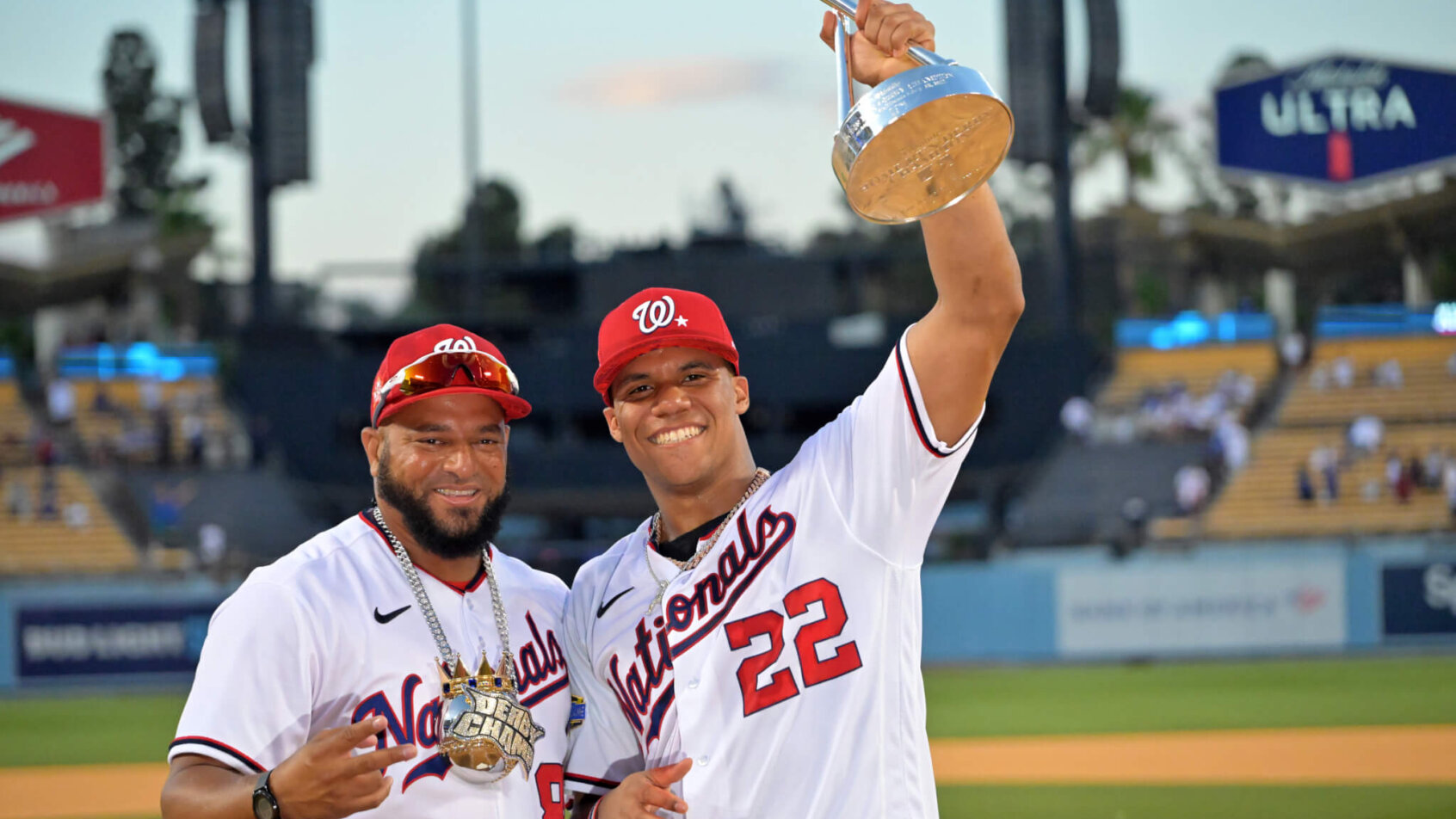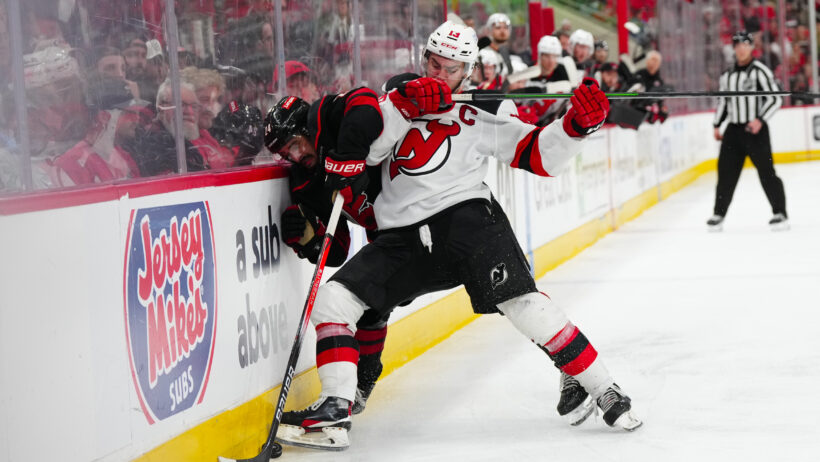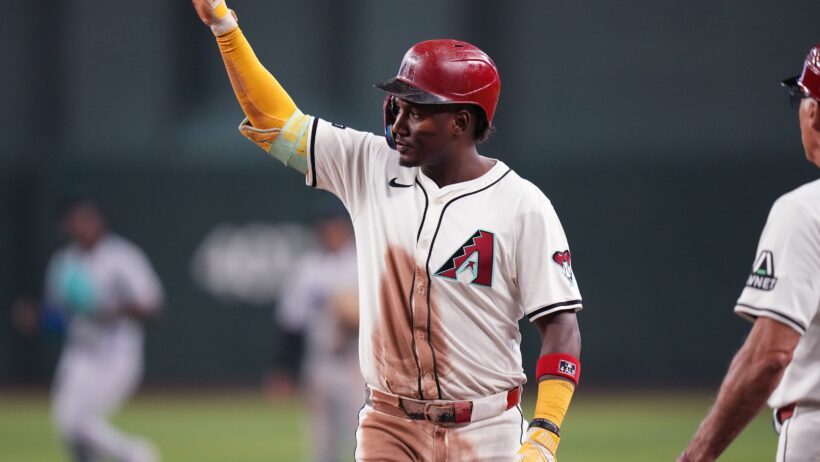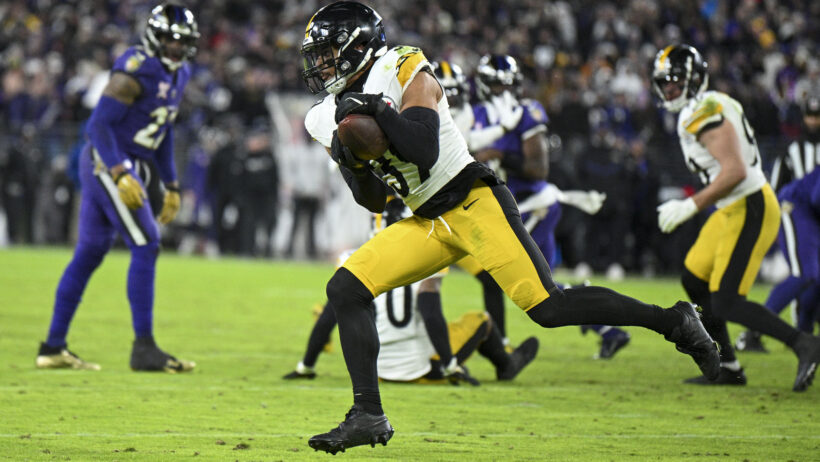Mistakes Cost Bettors in MLB Home Run Derby
By Robert Duff in MLB Baseball
Published:

A home run that didn’t count but should have. Several home runs that were counted but shouldn’t have been added to the total.
Put these two events together and MLB bettors have a major-league controversy to discuss from Monday’s MLB Home Run Derby.
Often the marquee event during MLB All-Star Weekend, the home run derby is a bigger deal than the game itself. That means plenty of baseball bettors are getting action while watching massive numbers of baseballs exit the stadium.
It’s all fun and games until somebody bets on it. Or, to be more precise, it’s all fun and games until somebody loses a bet on it. The MLB Home Run Derby normally generates a bigger betting handle than the MLB All-Star Game.
That being the case, things had better be on the up and up. And it would appear that during Monday’s MLB Home Run Derby at Dodger Stadium, there was skullduggery afoot. Mistakes, oversights and bending of the rules ended up costing some bettors plenty.
Schwarber Robbed During Home Run Derby
Kyle Schwarber of the Philadelphia Phillies came into the MLB Home Run Derby with a National League-leading 29 home runs. That was the highest homer total among the eight competitors.
He was the #1 seed and the #2 betting choice in the event. But Schwarber didn’t even make it out of the first round of the bracket. He lost by one home run to #8 seed Albert Pujols of the St Louis Cardinals. Pujols recorded a 20-19 victory.
Kyle Schwarber hits 20 in OT, but ESPN forgets to count homerun #18.
Robbery in the Ravine. https://t.co/luIhUuWiRa
— Crossing Broad (@CrossingBroad) July 19, 2022
Or did he?
As Pujols and Schwarber went to overtime, replays clearly were showing that Schwarber clouted another dinger that didn’t get dinged up on the scoreboard. It would’ve been his 18th homer. It also would’ve meant that both Schwarber and Pujols should have been left with a final count of 20 home runs. They should’ve kept competing to determine a winner.
Schwarber entered the competition with the second-best betting line in the MLB Home Run Derby odds at +300. Only two-time defending champion Pete Alonso of the New York Mets (+175) was showing shorter odds. A lot of jack would’ve been staked on Schwarber jacking more balls out of Dodger Stadium than any of the other seven competitors.
Pujols, the first 40 year old to compete in the MLB Home Run Derby, was the #8 seed. He was the longest shot on the board at +2000.
Did Soto Cheat His Way To MLB Home Run Derby Title?
Schwarber was gone in the first round. However, controversy wasn’t going anywhere in the MLB Home Run Derby.
Washington Nationals third baseman Juan Soto was competing in this event for the second time. He was a semifinalist last year. At odds of +600 Soto was drawing the third-shortest betting line in the MLB Home Run Derby.
Shufflin’ his way to a #HRDerby crown!@JuanSoto25_ is your 2022 champion! pic.twitter.com/BFsI5t2dO1
— MLB (@MLB) July 19, 2022
Ultimately, it would be Soto who’d win. He ended up slugging his way to a 19-18 victory over Seattle Mariners rookie sensation Julio Rodriguez in the final.
Again, though, it was not a victory without controversy.
Schwarber got jobbed out of a home run that ultimately sent him packing. Soto was packing in a lot of extra swings leading to home runs. This is clearly was in violation of the MLB Home Run Derby rules.
Time Didn’t Stand Still for Soto
The rulebook for this event states that pitchers aren’t permitted to throw the next pitch until the previously-hot ball has completed its trajectory and come to a landing. MLB officials either turned a blind eye to it, or simply chose to ignore the fact that Soto’s pitcher kept feeding him pitches while balls he’d hit were still in play.
Soto’s pitcher kept tossing hit fat ones even while the home-plate umpire was holding his hands up, indicating that time was out until the previous hit finished out its journey. Some of these balls that Soto hit in this scenario left the ballpark and were counted as home runs – even though rules state clearly that they shouldn’t have counted.
The moment Juan Soto became a #HRDerby champ! pic.twitter.com/VoSXTeczj9
— MLB (@MLB) July 19, 2022
Since batters are swinging against the clock in this event – each round is assessed a time limit – those extra swings proved valuable in aiding Soto to gain his verdict.
Without those erroneously-counted long balls, Soto would’ve lost to Rodriguez, meaning those who bet on the Seattle slugger were missing out on a hefty payday for backing Rodriguez at +800.
MLB could close this issue down by going back to the previous format of a batter getting 10 outs (none home run hits) per round, as opposed to swinging against time.
- BETMGM SPORTSBOOK
USE CODE SBD1500 & GET $1,500 BACK IN BONUS BETS
- BET365 SPORTSBOOK
BET $5 & GET $150 IN BONUS BETS WITH CODE DIME365
- FANATICS SPORTSBOOK
BET & GET UP TO $1,000 IN BONUS BETS!
- DRAFTKINGS SPORTSBOOK
BET $5 & GET $150 IN BONUS BETS INSTANTLY!
- FANDUEL SPORTSBOOK
BET $5 & GET $150 IF YOUR BET WINS
- CAESARS SPORTSBOOK
USE CODE SBD2DYW & BET $1 TO DOUBLE THE WINNINGS ON YOUR FIRST 10 BETS!
Must be 21+. GAMBLING PROBLEM? Call 1-800-GAMBLER (CO, IL, KS, KY, MD, MI, NC, NJ, OH, PA, TN, VA, VT, WV, WY); (800) 327-5050 or gamblinghelplinema.org (MA); (877) 8-HOPENY (NY); 1-800-NEXT-STEP (AZ); (888) 789-7777 (CT); 1-800-BETS-OFF (IA); 1-800-9-WITH-IT (IN); mdgamblinghelp.org (MD); morethanagame.nc.gov (NC); 1800gambler.net (WV)

Sports Writer
An industry veteran, Bob literally taught the course on the history of sports at Elder College. He has worked as a Sports Columnist for Postmedia, appeared as a guest on several radio stations, was the Vice President of the Society For International Hockey Research in Ontario, and written 25 books.




